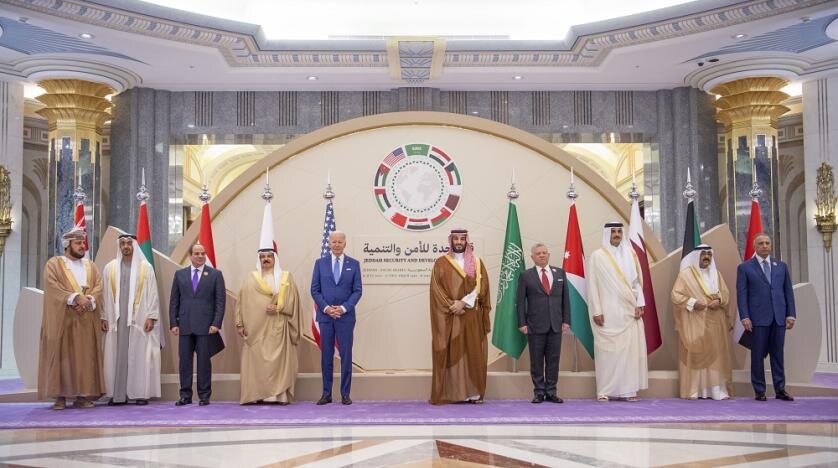Biden: Failure after failure

TEHRAN— Joe Biden made his first trip to the region with a number of objectives in mind. From creating a coalition against Iran to kissing the Saudi ring in order to boost oil production. Nonetheless, the tour was a complete failure. Here's why:
Biden's attempt to rally Arab leaders to persuade them to join forces with Israel to form a coalition against Iran backfired spectacularly. The conference in Jeddah failed because the leaders of Qatar, Jordan, and Egypt firmly condemned Israel's atrocities against the Palestinian people.
Furthermore, Biden believed that the Jeddah Summit could be used to encourage "normalization" with Israel by Arab states. In reality, it was a lose-lose situation for him.
Saudi Foreign Minister Prince Faisal bin Farhan Al Saud also said that he was not aware of any conversations about a defense alliance between Arab states on the southern shores of the Persian Gulf with Israel and that his country was not interested in such discussions.
Following the U.S.-Arab summit that Riyadh decided to open its airspace to all air carriers, he also said it had nothing to do with establishing diplomatic ties with Israel and was not a forerunner to subsequent actions.
Similarly, Egyptian President Abdul Fattah al-Sisi referred to the issue of Palestine as the Arab world’s number one issue, saying, “Our joint efforts to resolve the region’s crises, either those which occurred during the past decade or persistent ones before that, could not be successful except through forging a just, comprehensive and final settlement to the Arabs’ number one case, namely the Palestinian issue. This shall be based on the two-state solution in accordance with the relevant international legitimacy resolutions and stipulate the establishment of an independent Palestinian state along the June 4, 1967 borders, with East Jerusalem as its capital. It shall also guarantee the legitimate rights of the Palestinian people, ensuring that they live in security and peace…”
Biden had promised to label Saudi Arabia a "pariah" on the global arena in response to the murder of journalist Jamal Khashoggi by Saudi agents in 2018, but finally decided that U.S. interests demanded a rebalancing, not a rupture, in relations with the world's top oil exporter.
“To gain Saudi help to increase the level of its oil production and also influence the OPEC+ to do so. In these regards, he was only partially successful. The Saudi said that they are already producing 13 million barrels per day. They were also non-committal on persuading other OPEC members to lift their production levels,” Shireen Tahmaasb Hunter, a professor of political science at Georgetown University, told Tehran Times.
In the midst of high crude prices and other issues resulting from the Ukraine war, Biden requires the assistance of OPEC behemoth Saudi Arabia. Washington also seeks to limit Tehran's influence in the region and Beijing's global clout.
Biden traveled to Saudi Arabia in the hopes of convincing Riyadh to increase oil output in order to lower gasoline prices as pain at gas pumps is endangering his political life, especially as mid-term congressional election is approaching.
He departed the region empty-handed, hoping that the OPEC+ group, which includes Saudi Arabia, Russia, and other producers, will increase output at their summit on August 3.
"I look forward to seeing what's coming in the coming months," Biden said.
However, the projected price of Brent crude oil on the Intercontinental Exchange has risen to $106 per barrel, a more than 5% increase from Monday.
This rise follows Biden's four-day trip to West Asia, which was meant to slow the rise in oil prices.
This puts the final nail in the coffin of the 79-year-old U.S. president’s regional tour, which achieved nothing. On top of that, the UAE said it is planning to send an ambassador to Tehran in order to repair relations with Iran, according to the president's diplomatic adviser, Anwar Gargash.
Failure after failure.
Leave a Comment